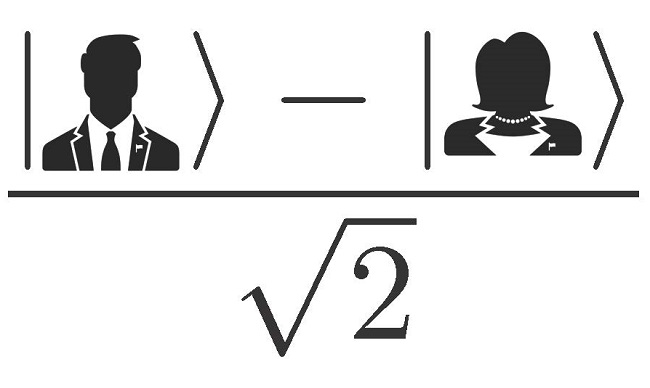

Bonus issues of preference shares are, therefore, tax-efficient in the year of allotment, but not so over the subsequent life of the preference shares. In India, Public Issues is one of the most prevalent forms of raising funds from a large group of investors. In this process, a company offers prospectus to invite the general public to purchase its shares by paying the share application money. It is a way of offering convertible shares or securities in the primary market to attract new investors for the subscription.
- Bonus or split in units is normally done when the Net Asset Value of the fund is at respectable levels.
- It is important to note here that Issue of bonus shares does not entail release of company’s assets.
- ● The number of additional shares available to shareholders is generally proportional to their existing shareholdings.
- These shares are given to the current shareholders on the basis of their existing holding in the company.
- Also, the shareholders of the Company reimburse any expenses regarding the offer.
Such a market is regulated by the Securities and Exchange Board of India . That is what shareholders of a good company feel when their company decides to throw a few shares in their direction. Here’s explaining what bonus shares are all about and why investors like investing in such companies.
Why Companies Issue Bonus Shares?
This refers to the part of a company’s reserves that cannot be distributed as dividends. However, if the company does not require a minimum paid-up capital, its shares can be very low. It is limited to a certain amount and can only be increased with shareholder approval. A bonus issue is taken as a sign of the good health of the company.
The company can collect the entire share price in one go or in several instalments. A company can raise funds in several ways; the issue of shares is one of them. Through share issuance, a company offers shares to the public and allots them to interested investors. In this article, read about what type of shares it can issue, how a company can use the proceeds of share issuance, and other details. The company can make a capitalization Issue of Shares to existing shareholders. Rather than the shareholders needing to pay for the shares themselves, the company uses its own money to fund the allotment.

This capital is not issued to the public in one go, and the company may choose to issue additional shares from time to time. Through early-stage investors, reinvesting profits, or borrowing from banks. The stock can be sold in the future to pay off debt or to raise money for new investments. Fully paid bonus shares are those shares that are distributed at no extra cost in the proportion of the investors holding in the company.
Each stock has a fair or intrinsic value which may or may not be equal to its market price. Value stocks are those which have a market price lower than their fair value. Investors purchasing such stocks can benefit when they reach or exceed their fair value. If the share is being traded in the spot market for Rs 100 then surely you can.
There are several high-quality study materials for your understanding. All of the study materials are prepared by subject experts to provide you with a clear understanding of every concept. For instance, the right to vote and the amount of dividend they will receive when there is a profit incurred by an enterprise whose share is out for sale is decided on the basis of such divisions. In case a director or employee of the company takes on a share option after being permitted by the company, the company may acquire shares.
Preference shares:
The record date is set by the company so that they can find the eligible shareholders and distribute bonus shares to them. When the company issues bonus shares, the term “record date” is used along with it. There are various types of preferential issue and procedure preferential allotment of shares and SEBI rules and regulations. We suggest and guide how to raise fund via preferential issue & where and how to invest in preferential issue.

Stocks provide you with a variety of sectors and industries to choose from, helping you diversify your portfolio and mitigate your risks. Always remember to narrow down on trusted and reliable financial partners to open your Demat account and trading account, like IIFL. Equity shares can be purchased from the stock exchange based on their prevailing market price at the time of purchase. Shares other than equity are available for purchase in the over-the-counter market. This is the most common type of share issued by an enterprise that grants voting rights to the shareholders. Also, there was a high demand for the stock in the primary market, which led to the pricing of Facebook’s stock to be fixed at $38 for each share as determined by the underwriters.
Understanding Issue
We collect, retain, and use your contact information for legitimate business purposes only, to contact you and to provide you information & latest updates regarding our products & services. We do not sell or rent your contact information to third parties. Check your Securities /MF/ Bonds in the consolidated account statement issued by NSDL/CDSL every month.
What is the definition of issue of share capital?
Issued share capital is simply the monetary value of the shares of stock a company actually offers for sale to investors. The number of issued shares generally corresponds to the amount of subscribed share capital, though neither amount can exceed the authorized amount.
The reserves by revaluation cannot be capitalized for a bonus issue nor should it be in lieu of a dividend. Special care should be taken that the total share capital does not exceed the authorized share capital of the company. As per the tax laws, a dividend is the distribution of accumulated profits of a company by issuing some of its assets to the shareholders.
Unissued Share Capital
Equity shares are transferable and are traded actively by investors in stock markets. As an equity shareholder, you are not only entitled to voting rights on company issues but also have the right to receive dividends. Also known as ordinary shares, equity shares give ownership rights proportionate to the shareholding. These shares are transferable and are traded actively by investors in the stock market.
What is the meaning of issue of shares at par?
Issue of Shares
The shares will be at par is when the shares are sold at their nominal value. Shares sold at a premium cost more than their nominal value, and the amount in excess of the face value is the premium.
They only have the option to either exercise the right or give it up. They successfully closed their rights issue at Rs. 53,124 crores on June 3, 2020. It is also the world’s largest rights issue by a non-financial institution in the last ten years.
Right Issue of Shares
Relative benefit on either option may get neutralised over time. In case of further shares issue by way of private placement, the equity dilution may be less had shareholders been rewarded definition of issue of shares with bonus issues. However, much depends on the pricing and the premium parts of the issue. An investor with a short-term outlook may benefit by a split rather than a bonus issue.
What are the 2 types of issue of shares?
Generally, the Issue of Shares is of two kinds – common shares and preference shares.
Depending on the type, a share can offer the holder part ownership of the company along with voting rights. These types of shares are a subcategory of common shares, wherein management divides the shareholders into multiple classes, all these classes are granted different voting rights. These shares grant a prefixed amount of dividend to its shareholders. They do not enjoy voting rights, though they receive a dividend before any other shareholder. The types of issues of shares are usually set by a company or enterprise that is issuing its share to the public.
It was observed that there was no all-embracing formula, which could provide ready solution to the problem, and that no touchstone had been devised. It laid down that every case had to be decided on its own canvass keeping in mind the broad picture of the whole operation in respect of which the expenditure has been incurred. Companies that find themselves at a place where they need to raise more money are the ones that come out with rights issues.
If the company fails, then it needs to refund the subscription amount received. The modus operandi observed is that once a client pays amount to them, huge profits are shown in his account online inducing more investment. However, they stop responding when client demands return of amount invested and profit earned. Once your order for the rights is placed, the order amount will get blocked in your account. If the shares are not allotted to you, the amount will be unblocked and you will be able to withdraw the funds. It is calculated as a company’s profit divided by the outstanding number of shares.
What is the meaning of issue of shares?
The issue of shares is the procedure in which enterprises allocate new shares to the shareholders. Shareholders can be either corporates or individuals. The enterprise follows the rules stipulated by Companies Act 2013 while circulating the shares.